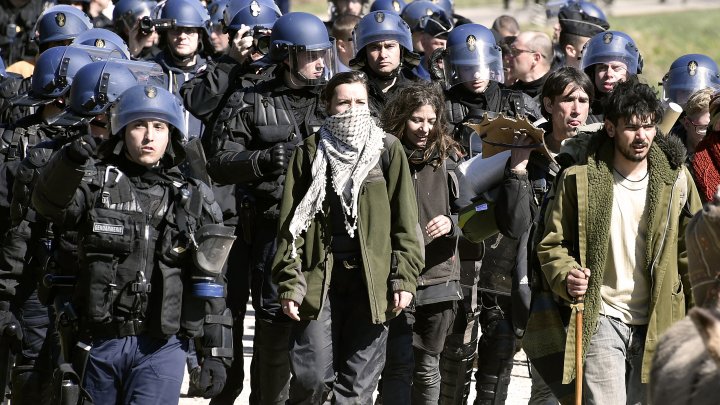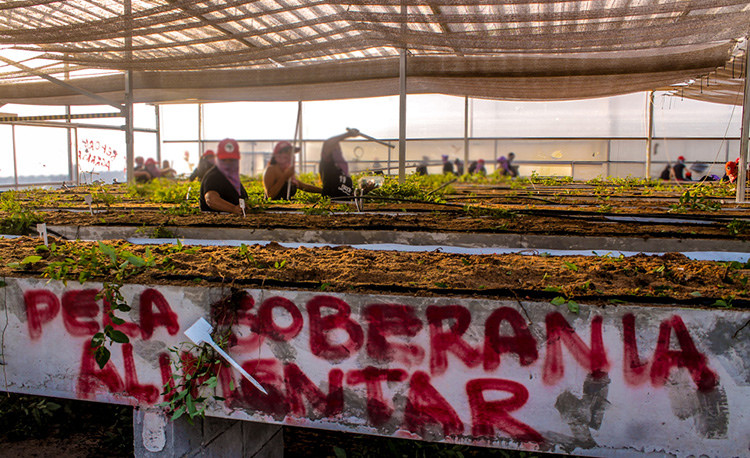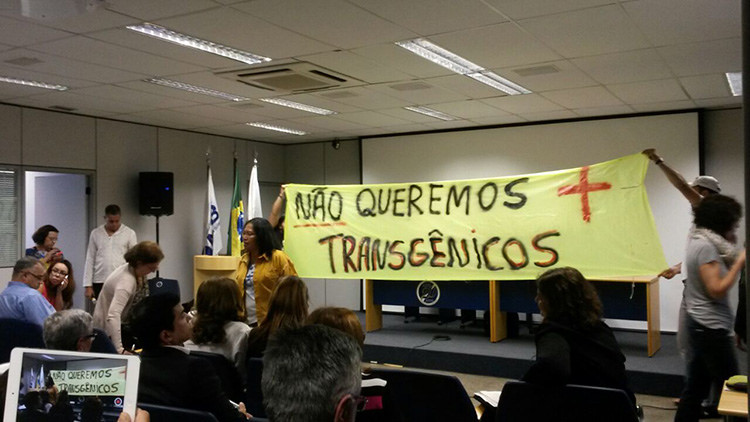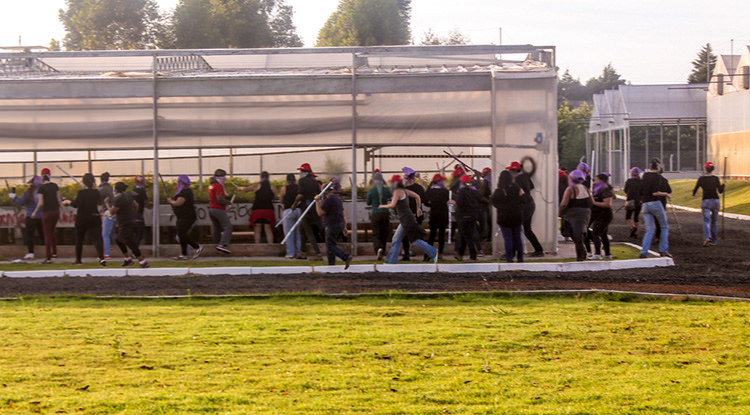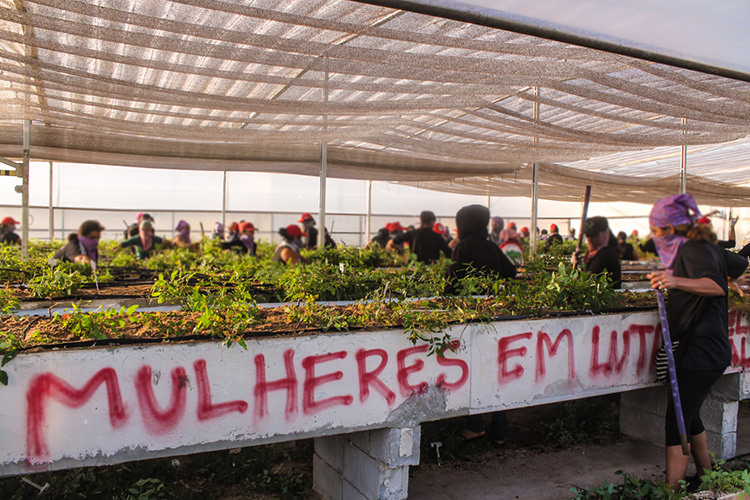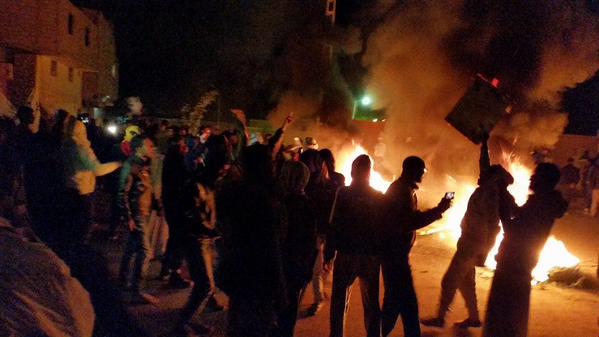12th March 2015
After more than a month making a stand against Metrobus plans by living in trees above Stapleton Allotments, protesters look set to be evicted this morning.
According to a Bristol Post reporter on the scene, at least 30 bailiffs have surrounded a make-shift camp with more being dropped off by bus.
The move comes two days after the council secured a second possession order for land in the area occupied by the Rising Up Group, which has said it will strongly resist any moves to get them off the land.
It is not the first time there has been activity by security staff at the site, however reports from the scene suggest this is the first time bailiffs have been making obvious moves towards the camp.
People have locked into barrels of concrete, up trees, digger diving, naked cat & mouse, locking on to digger arms, concrete blocks in caravans and more!
Day 41! EVICTION UDATE
4.10pm. Update: The attempted eviction is still going on – all of the tree sits are still full of people who are all fine & in good spirits – giving us a show of acrobatics and dare devil climbing here & there!
The heroic person in the meadow tunnel has after 7 hours been brought out – waved an arm but was on a stretcher- hopefully OK. Other people still locked onto trees on the ground and gate!
They have crashed diggers and bulldozers through bird rich wooded area and have managed to swamp one of their bulldozers after digging through a culvert, which 2 people then chose to lock themselves to! ..
Some security and bailiffs have been OK others heavy handed and dangerous – at one point they were about to use an axle grinder to remove a D lock from someone’s neck until we shouted that they could kill him! One woman was pulled around and one bailiff tried to drag her out of a tree – in a totally unsafe manner – all captured on video.
It is a media frenzy, but the usual Rising Up way the atmosphere is somewhat jovial and there is nothing to fear… if you are spectator on the ground. Photos and videos about to be posted. Rising Up call for more people to come down to the site to show their solidarity and witness this spectacle
– COME & SHOW YOUR SUPPORT & SOLIDARITY TODAY! – It is something you will never forget and a story to tell for years to come!
10.30am update Many of the protestors, including legal observers on the ground have forcibly been removed – dragged off by heavy handed bailiffs , one on one, showing completely unreasonable force, one female protestor had her top pulled up whilst a bailiff smoking a fag dropped ash in her face. A bulldozer has started illegally demolishing buildings which have asbestos roofs and a digger has gone through a bird rich woodland area razing trees – despite it being bird nesting season – making this both a worrying and illegal act. Bristol Council “Green Capital” ..hold your head in shame! The world is watching.
8.38am Update: EVICTION IN PROCESS ( ABOUT 1 HR IN) around 70 bailiffs on site – have been very heavy handed dragging off legal observers and other people – 1 on 1 ( they should be 2 people). A climbing team is there and have set up a station and medical tent. Very few police on site – most on the road. They have brought in a digger and an amphibious vehicle and set up medical area…hope not to be needed. All of the tree sits are full and some people still on the ground! COME DOWN , BRING CAMERA, BANNERS, NOISE AND GOOD VIBES!




